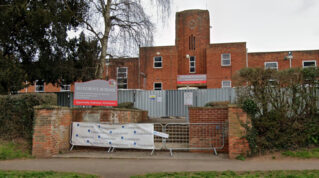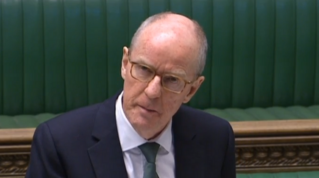Three primaries have closed in the past 10 days following the discovery of “crumbly” reinforced autoclaved aerated concrete (RAAC) as news emerged that a school building with the same problem has been shut for months.
The Department for Education told the four schools, which are spread across Essex, Tyne and Wear and Newcastle, to shut after finding RAAC in their ceilings.
The potentially dangerous material has been dubbed “Aero-like” by structural engineers amid fears it is “now life-expired and liable to collapse”.

Government officials have been asking responsible bodies – trusts and councils – to complete surveys on the presence of RAAC on their sites since last March.
Now it has emerged that pupils have had to attend lessons remotely or on alternative sites, with reports expected to increase “by the week”.
Labour shadow minister Stephen Morgan branded the “dangerous state of school buildings” a “national disgrace”.
He said: “It is the direct result of 13 years of Conservative disregard for teachers, parents and pupils.
“The government’s complacency on this is inexcusable given the scale of the problem, with stories of crumbling school buildings that pose a risk to life increasing by the week.”
Liberal Democrat education spokesperson Munira Wilson urged ministers to “invest to clear the backlog of school and college repairs”.
School rents space from neighbour
Mistley Norman C of E primary in Essex has been renting space from an alternative school and providing transport for the six-mile-round trip “to ensure learning for our pupils can continue” since April.
Emma Wigmore, the CEO of Vine Schools Trust which runs the school, said the repair bill could total £1.9 million. The trust does not have “necessary funds to pay for the extensive repair work required for the school building to remain in use”, she added.
It is “exploring funding streams with the Department for Education to see if there is a possibility of covering the repair costs”.
RAAC was found in the ceiling of the school’s main building. Some parts of the school will be habitable in September, but the trust “will rent as much classroom space as we can from local schools to accommodate remaining pupils”.
Last Wednesday, Hockley Primary School in Essex was told to “stay closed next week and for the rest of the school year” by the DfE. It was deemed “not safe to open”.
Academies Enterprise Trust, which runs the school, said youngsters will move to remote learning before attending class at two of the chain’s other schools nearby.
A spokesperson said they were in discussions with the DfE about the “nature of the works and plans for September”.
Bishop Bewick Catholic Education Trust, which runs two affected schools in the North-East, said the buildings “are closed while we review our options for long-term remediation”.
A spokesperson added that children “will have remote learning and, in the coming week, we will organise alternative arrangements” to return to the classroom.
DfE pledges ‘additional support’ where needed
The DfE pointed to its three capital funding streams: the school rebuilding programme, condition improvement funding and urgent capital support.
However, where the government “is alerted to significant safety issues with a building that cannot be managed within local resources, the department will provide additional support on a case-by-case basis”, the spokesperson said.
Where the presence of RAAC is confirmed, the DfE supports schools “on the advice of structural engineers”, which can include “capital funding for measures”, they added.
While the department is working to support the four affected schools, it did not confirm who will fund any repairs.
The collapse of a primary school’s flat roof in 2018 – at a weekend and with no casualties – is believed to have brought the potential danger of RAAC’s fragility into sharp focus.
In September, the Office for Government Property issued a safety briefing warning that RAAC was “life-expired and liable to collapse”.
The body fears the “crumbly” material, used widely in flat-roofed school buildings, is “liable to collapse”.
More than 150 schools “have been identified as potentially having RAAC”. This week the government widened its inquiry into RAAC to all public buildings.









Doesn’t the DfE Risk protection Arrangement insurance cover the cost of any RAAC-related remediation work?